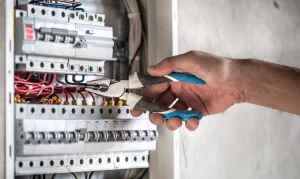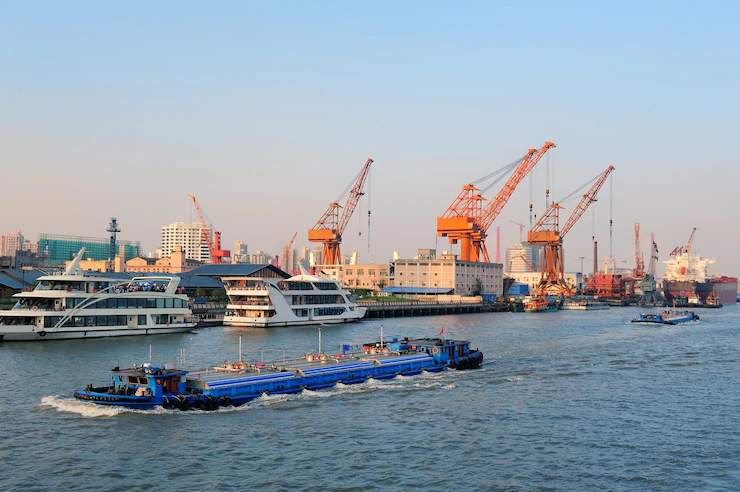Before going to take a job in public utilities, one may eventually ask what public utilities jobs pay.
Although many people are driven by the passion to work or render a particular the pay can also act as a catalyst in delivering an incredibly professional job, and Today we are going to be looking at how much a person can earn in any of the jobs under public utilities.
What Do Public Utilities Jobs Pay
Jobs in the power, gas, water, and telecommunications industries all fall under the category of public utilities. In essence, it makes sure that we receive the essential utilitarian commodities and services we require on a daily basis.
When seen on a national level, all of these industries are enormous, and it is evident that all different sorts and degrees of employees with various backgrounds and experiences are employed in each of them. As a result, the pay grade changes in accordance with the duties. Let’s take a look at some of the positions in public utilities, for instance.
Safety Engineer

Safety Engineer
A safety engineer in the public utilities industry is responsible for ensuring that the company’s operations are conducted in a safe and compliant manner. This includes developing and implementing safety policies and procedures, conducting risk assessments, and investigating accidents or incidents.
The salary for a safety engineer in the public utilities industry can vary depending on factors such as the company, location, and the individual’s experience and qualifications. However, on average, safety engineers in the public utilities industry can earn between $70,000 and $120,000 per year.
Lineman

Lineman
A lineman in the public utilities industry is responsible for installing, maintaining, and repairing electrical power lines and associated equipment. This includes tasks such as climbing poles and towers, stringing and splicing wire, and troubleshooting electrical problems.
Linemen typically work on power lines that are high above the ground, and may also work on underground power lines. The salary for a lineman in public utilities is between $50,000 and $90,000 per year.
Electrical Engineer

Electrical Engineer
An electrical engineer in the public utilities industry is responsible for designing, developing, and maintaining the electrical systems and equipment used by the company. This includes power generation, transmission, and distribution systems, as well as control systems and other electrical equipment.
The salary for an electrical engineer in the public utilities industry can be between $70,000 and $120,000 per year.
Utility Worker

Utility Worker
A utility worker’s duties include upkeep, security, and cleaning of the premises, buildings, machinery, and infrastructure. According to the workplace, maintenance and landscaping are also part of his/her responsibilities. With little experience, a utility worker makes an average income of $31,000.
Utility Manager

Utility Manager
The average salary of a utility manager in the United States can vary depending on factors such as the company, location, and the individual’s experience and qualifications. However, according to Payscale, the median salary for a utility manager is around $87,000 per year. Utility managers typically have a bachelor’s degree in engineering, business, or a related field and have experience in the utility industry.
They are responsible for managing the operations of a utility company, including power generation, transmission, and distribution, as well as overseeing staff, budgeting, and financial planning, and ensuring compliance with industry regulations
Plant Operators

Plant Operators
A plant operator is responsible for the safe and efficient operation of equipment used in the production of goods at a manufacturing or industrial plant. They typically monitor and control equipment such as boilers, generators, and other machinery to ensure that production runs smoothly. They may also be responsible for performing routine maintenance and troubleshooting problems as they arise.
According to the Bureau of Labor Statistics, the median annual salary for power plant operators, distributors, and dispatchers is $85,130.
Lines Inspector
It is important to notice that the line inspector can be working in many different industries like construction, manufacturing, transportation, and utilities. The responsibilities and pay may vary depending on the specific industry and type of inspection they are performing.
A line inspector can earn a median salary of $37,340.
Factors Affecting Salaries of Public Utilities Positions
The question What do public utilities jobs pay? sometimes can depend on a variety of factors which include the following;
Experience
Experience obviously has an impact on how much money you get paid for your skills and knowledge. In the field of public utilities, experience matters more than education because it can lead to new prospects even if you lack the required academic credentials.
The reason for this is that businesses favor workers who are familiar with the specifics of managing utility plants and operations.
Education
Education enables you to land a high-paying career in the managerial or expert sector. A high-paying career is possible if you have an engineering degree in a suitable field, such as communication or electricity.
But there is something for everyone in the utility business. Therefore, even if you lack formal education, your talents will still be highly valued in the utility industry.
Location
Location can have a significant impact on the salary of utility workers. Factors such as the cost of living in a certain area, the demand for utility workers in that area, and the availability of jobs in the area can all affect salary.
Utility markets are unregulated in places like California, New Hampshire, Connecticut, etc. As a result of the competition these states endure, you can anticipate higher pay if you work for a utility company there.
Specialization Required
Your wage in the utility industry is based on the level of specialized skills needed for your position. For instance, a powerline man needs a very specific and unusual set of qualities, which can be hard to discover in most people, such as balance, confidence, electrical understanding, etc.
FAQ On What Do Public Utilities Jobs Pay
What is the highest paying utility job?
The highest-paying utility jobs are typically those that require a high level of skill and expertise, such as a Power Plant Operator or a Transmission Line Engineer. According to the Bureau of Labor Statistics, in May 2021 the highest-paying utility job was a Power Plant Operator with an average salary of $89,180.
What are some common qualifications for utility worker jobs?
Some common qualifications for utility worker jobs include a high school diploma or equivalent, a valid driver’s license, and the ability to pass a physical examination and background check. Some positions may also require specialized training or certifications, such as a commercial driver’s license or a certification in a specific area of utility work.
Summary
Jobs in the public utilities sector are satisfying, secure, and safe possibilities with competitive pay. Entering the public utilities sector at an entry-level is also strongly advised because it provides an opportunity for growth.
The wide range of occupations that the utility business offers are another advantage. As a result, anyone wishing to enter the field who possesses the necessary degree of training, credentials, and experience is very likely to find employment that suits them.
You should not have any problem making your decision now you have knowledge about how much you can earn as a public utilities worker.







Leave a Comment